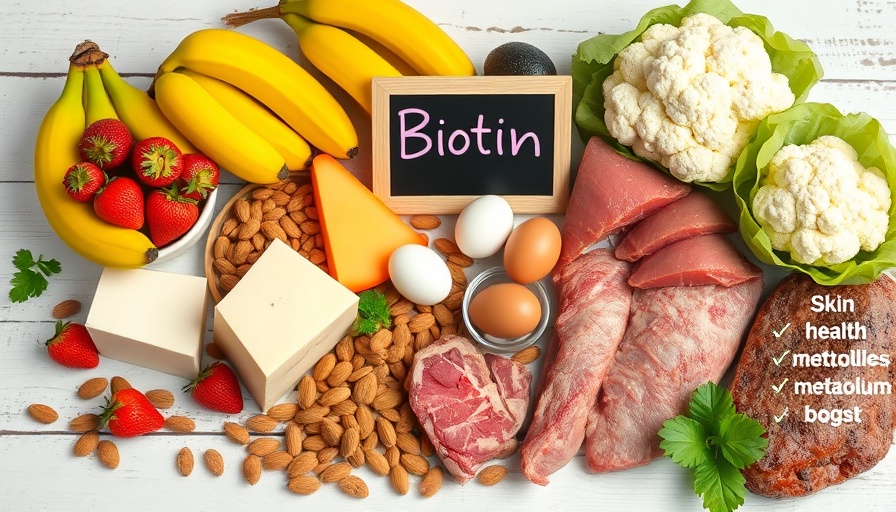
Unlocking the Power of Biotin for Dogs: A Must-Have Nutrient for Health
As pet parents, we all strive to ensure the best health and happiness for our furry companions. One superstar nutrient that often deserves more attention is biotin, also known as Vitamin B7. While many associate it with luscious fur, this water-soluble vitamin does so much more. Researchers and experts in canine nutrition reveal that biotin is essential for multiple aspects of your dog's well-being, from skin and coat integrity to energy metabolism.
Why Biotin Matters for Your Dog's Health
Biotin serves as a crucial coenzyme that boosts several metabolic processes, helping convert carbohydrates, fats, and proteins into energy. This not only fuels our dogs' playful moods but also supports their overall health. Numerous studies, including those highlighted by Volhard Dog Nutrition and Vetericyn, showcase the wide-ranging benefits that biotin delivers:
- Skin Health: Biotin acts at a cellular level to ensure the integrity of the skin barrier, preventing excess dryness and irritation. It enhances hydration through fatty acid production, making it instrumental in managing conditions like dermatitis.
- Coat Quality: Most owners desire a shiny coat for their dogs, and biotin plays a significant role in keratin production, leading to stronger, healthier fur and reduced shedding.
- Joint and Bone Support: While not a direct treatment for arthritis, biotin contributes to the health of connective tissues, aiding in joint mobility and repair.
- Energy and Metabolism: With biotin influencing nutrient conversion to energy, it’s a hidden power worker behind your dog’s vitality and enthusiasm.
- Digestive Health: Biotin fosters a healthy gut environment and aids in nutrient absorption, enhancing your dog's overall digestive function.
Signs of Biotin Deficiency in Dogs
A lack of adequate biotin can lead to multiple health issues in dogs. Pet parents should monitor for symptoms such as dull or lackluster coats, dry skin problems, abnormal shedding, or digestive distress. Research supports that biotin deficiencies can manifest in noticeable ways, making close observation critical for early intervention.
Quality Sources of Biotin
Integrating biotin into your dog's diet can be achieved in several ways. Natural sources include:
- Eggs (particularly yolks)
- Liver and kidney
- Salmon
- Sunflower seeds and almonds
- Sweet potatoes and bananas
Additionally, veterinarians often recommend supplements to ensure adequate intake, especially for dogs with special dietary needs. Products like Clean Run's Biotin Plus offer concentrated doses of this vital nutrient.
Potential Risks and Side Effects
Biotin is generally safe for dogs due to its water-soluble nature, meaning excess amounts are excreted rather than stored in the body. However, as with any supplement, irresponsible administration can lead to adverse effects, including skin reactions or digestive disturbances. Consultation with a veterinarian is always recommended when introducing new supplements.
In Closing: Ensuring Your Dog’s Optimal Health with Biotin
Understanding and incorporating biotin into your dog's health regimen can lead to significant improvements in their quality of life. From enhancing coat shine to ensuring joint support, biotin plays an understated but vital role in canine well-being. Stay proactive and consult with your veterinarian regarding your dog's specific dietary needs to harness the full potential of this astounding vitamin.
To support your dog's skin health and overall vitality, consider a comprehensive approach to their nutrition. Together, we can give our furry friends the luminous health they deserve!
 Add Row
Add Row  Add
Add 




Write A Comment